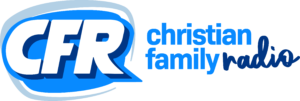7/23/25
Mid-Year Cash Flow Planning for Back-to-School and Holiday Expenses
Summer’s a season of spending — but before it wraps up, it’s wise to start looking ahead to the two biggest spending events of the year: back-to-school season and the holidays.
Why Plan Cash Flow Now?
If you wait until August or December to think about these costs, they can easily throw off your budget or result in credit card debt.
By identifying these upcoming expenses mid-year, you can plan and set aside funds gradually.
Back-to-School Planning:
Make a list of what your children will need:
- Clothes and shoes
- School supplies
- Backpacks and lunch kits
- Activity and technology fees
Estimate costs and divide that total by the number of pay periods left before school starts to ease the hit on your budget.
Holiday Expense Planning:
Look at last year’s spending for gifts, travel, decorations, and parties. Decide if you want to match, reduce, or increase that budget this year.
Create a sinking fund: A separate savings account labeled “Christmas 2025” or “Holiday Fund” works wonders. Contributing a small amount per paycheck starting now spreads out the financial burden.
Pro Tip: Planning ahead removes financial stress and helps you enjoy these seasons without relying on credit.
7/16/25
Why You Should Update Your Beneficiaries (And How to Do It)
This one’s often overlooked, but it’s one of the simplest, most important financial maintenance tasks you can do — especially mid-year.
What Are Beneficiaries?
A beneficiary is the person (or people) who will receive your assets when you pass away. This applies to:
- Life insurance policies
- Retirement accounts (401(k), IRA)
- Investment accounts
- Payable-on-death bank accounts
Why Mid-Year Is the Perfect Time to Review Them:
Life changes happen — marriages, divorces, births, deaths, and new relationships. If you don’t update your beneficiaries, your assets might not go where you intend.
Important Note: Beneficiary designations typically override what’s written in your will. Meaning if your ex-spouse is still listed on your life insurance policy, they may legally receive the payout, no matter what your will says.
How to Check and Update:
- Log into your financial and insurance accounts.
- Review current beneficiary designations.
- Update them as needed, including adding contingent (backup) beneficiaries.
Pro Tip: Make this part of your annual or mid-year financial review checklist. It takes just a few minutes and ensures your loved ones are protected.
How to Evaluate and Boost Your Savings Rate This Summer
What Is a Savings Rate?
Your savings rate is the percentage of your income you set aside for future goals. That could be for:
- An emergency fund
- Retirement accounts (like a 401(k) or IRA)
- Vacation or home upgrades
- A down payment fund
Why Review It Mid-Year?
Many people set savings goals in January and forget them by summer. By checking in now, you have enough time left in the year to make meaningful adjustments.
Key Benchmarks to Consider:
- Emergency Fund: 3–6 months of living expenses
- Retirement Savings: 10–15% of your income (at minimum, enough to get your full employer match)
- Other Savings Goals: Whatever aligns with your plans for the year
How to Boost Your Rate:
- Automate your savings so a set amount moves from your paycheck to savings before you can spend it.
- Increase your 401(k) contribution by 1–2%.
- Set up a separate account for specific goals like holiday shopping or travel.
Pro Tip: Even small increases add up. A 1% bump in your savings rate today can translate to hundreds — even thousands — over time.
7/2/25
📑 Why a Mid-Year Tax Withholding Check Is a Smart Financial Move
As we hit the halfway mark of the year, it’s easy to get caught up in summer plans and forget about the financial housekeeping that can save you stress later. One crucial task to tackle right now? Reviewing your tax withholding.
Why Does Tax Withholding Matter?
Your tax withholding is the amount your employer takes out of your paycheck for federal (and sometimes state) taxes. If too little is withheld, you might owe a hefty bill come tax season. If too much is withheld, you’re essentially giving the government an interest-free loan.
Who Should Check Their Withholding?
Life changes affect your taxes. Check your withholding if you’ve:
- Changed jobs
- Gotten married or divorced
- Welcomed a child
- Taken on a second job or side hustle
- Received a big raise or bonus
- Bought or sold a home
How to Review and Adjust It
Use the IRS Tax Withholding Estimator to get an accurate picture of whether you’re on track. If adjustments are needed, complete a new W-4 form with your employer.
The Payoff
A small tweak now can prevent an unpleasant tax surprise or free up extra money in your paycheck to boost savings, pay down debt, or fund a family trip.
Pro Tip:
Set a reminder to do this every July — it’s a good mid-year habit that pairs well with your financial check-in.

